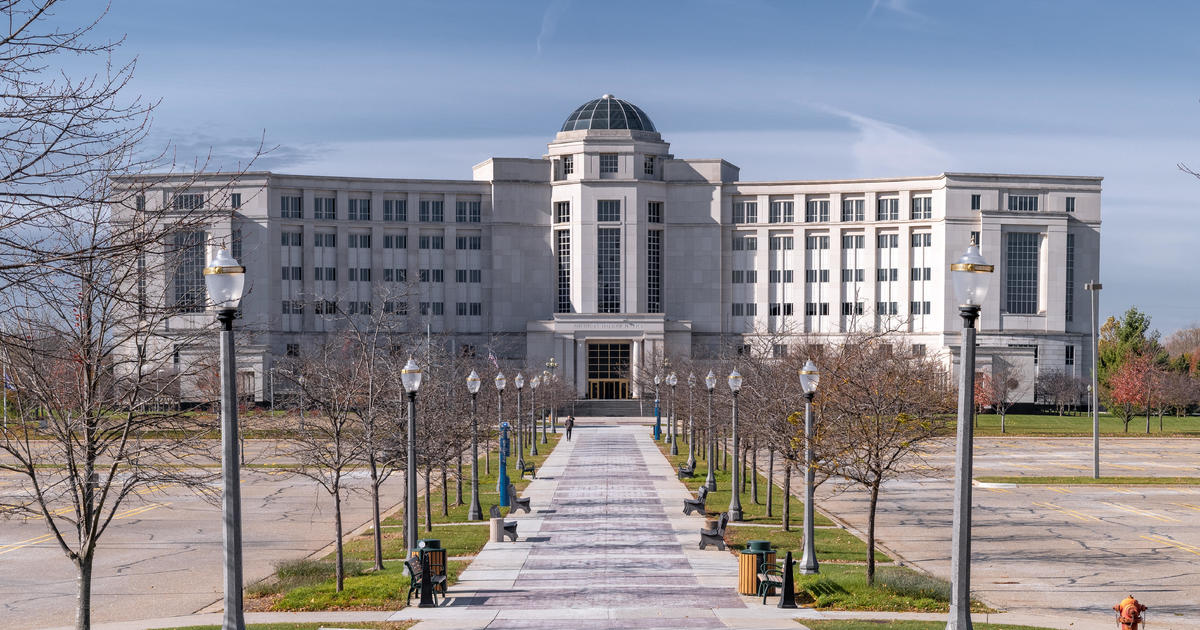Call For Job-Creation Incentives Is Renewed In Michigan
By David Eggert, Associated Press
LANSING (AP) - Gov. Rick Snyder's administration and economic development officials are readying a new push to offer tax breaks to attract large-scale business expansions, contending that Michigan has missed out on jobs being aggressively sought by other states.
Senators hope to propose their legislation in the coming week. At the same time, business executives and other backers of the bills will amplify public efforts to persuade skeptics in the wake of a shift away from such targeted tax incentives.
The measures, which easily won approval in the Republican-led Senate late last year only to die in the GOP-controlled House, would authorize Michigan to let qualified companies keep part of their employees' income tax withholdings if they add a minimum number of jobs. The businesses would have to create at least 500 jobs or, if they pay at least 125 percent of the average local wage, at least 250 jobs.
Details were still being hashed out and were not final on Friday. Under the previous bills, retail stores, pro sports stadiums and casinos would not have qualified and annual foregone revenue would have been capped at $250 million.
Notably, the legislation is backed by the Republican governor, who has been critical of such breaks. Michigan stopped issuing new business tax credits beginning in 2012 as part of his overhaul that slashed business taxes, instead favoring cash grants and loans for economic development. But the state remains liable for credits worth billions of dollars that were given to automakers and other major employers, especially to keep jobs in the state during the Great Recession.
"We've made a lot of great changes and advancements with our tax policy, with some of our regulation. But we're still competing with the other states," said Sen. Jim Stamas, a Midland Republican who is spearheading the bills. "If you look around regionally, this is one of those components Michigan just doesn't currently have."
The Business Leaders of Michigan, a group of executives from the state's largest companies, is involved in backing the legislation. President and CEO Doug Rothwell said it would create a tool to attract good-paying jobs and make Michigan competitive with states that are spending much more to lure businesses.
The bills are especially relevant now that President Donald Trump is focused on bringing jobs back to the U.S., he said.
"In a perfect world we wouldn't need any of this," he said of the tax incentives while noting the fierce competition with other states. "But the reality is if they've got a machine gun and we've got a pistol, my gosh we're going to get killed here. All we're doing is hurting ourselves."
He stressed that unlike the old Michigan Economic Growth Authority credits that morphed more into job retention credits in the recession, these incentives would only apply for new jobs and not cost the state tax revenue it otherwise would collect.
The legislation is opposed by the Mackinac Center for Public Policy, a Midland-based conservative think tank that has long criticized the use of such incentives as a way for politicians to issue "press releases" about promised new jobs that do not pan out.
"There's perennial political pressure to pass these things. But that doesn't mean that they actually do the thing they say they're going to do — improve the state economy — nor do they justify their costs," said James Hohman, the center's assistant director of fiscal policy. "We've transferred loads of taxpayer dollars already."
He pointed to an analysis by the Kalamazoo-based Upjohn Institute, released in February, showing that Michigan's incentives were 46 percent above the average state in 2015 and higher than those in Ohio, Illinois and Wisconsin. Indiana's incentives were bigger. The study noted that Michigan's incentives for new projects were significantly cut in 2012 and 2013.
Snyder told The Associated Press in December that while he dislikes such tax credits and has "wiped most of them out," they can have merit. He supports both the job-creation incentives and separate Senate-passed tax breaks pending in the House that are targeted toward the redevelopment of contaminated brownfield sites.
"They should be very limited in terms of what they cover, how much they involve and how long they last. ... For large-scale manufacturing projects, we don't have a great tool in our toolkit," he said.
Economic development experts say Michigan in many cases is overlooked by corporations looking to move or expand because site selectors automatically dismiss the state's incentives as too weak.
JoAnn Crary, the president of Saginaw Future, an economic development organization in Saginaw County, said Michigan should "get in the game" with the likes of Texas, South Carolina and Tennessee. Landing 250 new jobs that pay a quarter more than the region's $20-an-hour average wage would "change the face of our communities," she said.
© Copyright 2017 The Associated Press. All Rights Reserved. This material may not be published, broadcast, rewritten or redistributed.



